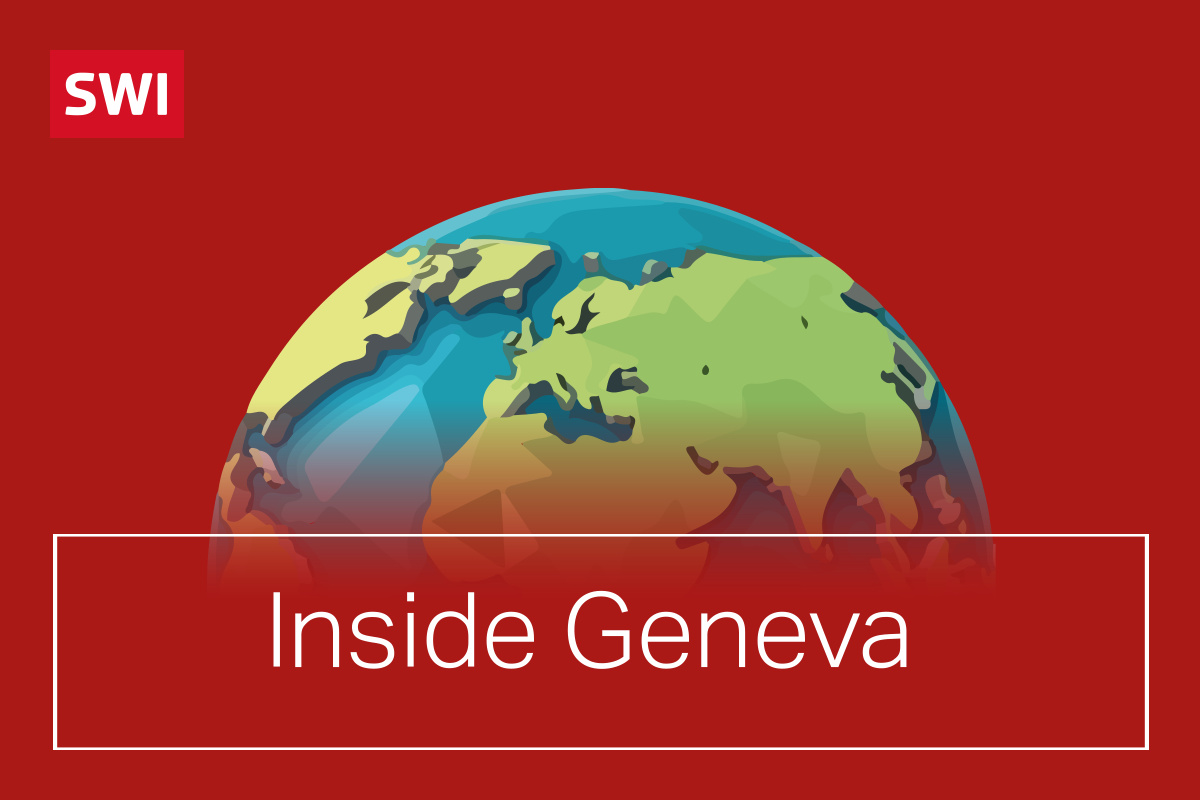The SDGs: Achievable? Or pie in the sky?
No poverty, zero hunger, good health and well-being for all, quality education, gender equality, clean water, decent work, climate action, peace, justice...what’s not to like on a list like that? All these and more are included in the United Nations 17 Sustainable Development Goals.
Agreed by the UN General Assembly, they are supposedl to be achieved by 2030 as a follow up to the eight Millennium Development Goals – remember them? They included the key goals of eradicating extreme poverty and hunger, and ensuring primary school education for all.
Well, the best laid plans, as they say. We all know these goals have been, at best, only partially achieved, so what is the point of them? Should we view them as truly aspirational and achievable, or unrealistic pie in the sky?
That’s the subject of this week’s Inside Geneva podcast, recorded in front of a live audience at Geneva’s Graduate Institute. Our guests include Martin Gutmann, currently writing a book on the historical context of the SDGs.

More
The SDGs: Can we solve all of the world’s problems?
As Gutmann points out, humanity’s drive to improve our lives and our world is not new. In the 19th century, both Europe and North America saw grand civil engineering projects, from the water and sanitation systems that lowered child mortality dramatically in big British cities like Manchester, to Gutmann’s example of the Eerie Canal.
Initiated by New York governor Dewitt Clinton in the early 1800s, he viewed it as a project which would connect the continent of North America’s natural resources to the outside world, and turn Manhattan, then an unpopulated muddy island, into a vibrant business centre for the entire country.
His skeptics, of which there were many, dubbed the canal “Clinton’s ditch’”or “Clinton’s folly”, but in the years following its opening in 1825 the governor was vindicated. Look at Manhattan now and it’s clear that Dewitt Clinton dared to dream big, and got it right.
Too many and too complicated?
But that was just one canal – the SDGs, let’s remember, stretch to 17, some of which appear a little vague. How, for example, do you measure quality education? What exactly constitutes decent work? And who decides when these have been achieved?
Claire Somerville, director of Geneva Graduate Institute’s Gender Centre, is also a panelist on the podcast, and she points out that nearly all the SDGs are underpinned by achieving gender equality. As long as women earn less than men, have fewer education and career chances than men, and suffer discrimination in all walks of life, then those key goals of ending poverty and zero hunger cannot really be achieved.
Meanwhile our third panelist, lawyer and climate specialist Frederic Perron-Welch makes the same case for climate action. As the planet warms, with the consequent destruction and displacement caused by climate related extreme weather events, the SDGs slip further and further away.
Set priorities
So should the UN jettison some of the more vague SDGs, and go all out to tackle gender equality and climate change? Given the global shock caused by the Covid 19 pandemic, and the consequent economic downturn and shrinking of aid and development budgets, perhaps it would be wise to set a few key priorities.
But maybe that’s too pessimistic. Our fourth panelist, Mukta Dhere, brought a delightfully refreshing blast of optimism to our podcast discussion, when she insisted she believed the SDGs could and should all be achieved by 2030.
Mukta is a student at the Graduate Institute, and coordinator of the institute’s, Advancing Development Goals Challenge. The challenge invites students from around the world to present innovative and pragmatic solutions to some of the key problems facing our planet. Mutka told us that hundreds of doable solutions are offered each year. Some of the most successful are community based, and appear modest, but can have an enormous, and positive impact.
And Mukta gave us a timely reminder that achieving the SDGs doesn’t just depend on the UN and government leaders. It needs all of us, every day, to think about how we live, how we consume, the choices we make in our daily activities.
It’s a fascinating listen, so do please tune in – and feel free to share your thoughts with us at insidegeneva@swissinfo.ch
And don’t miss our next Inside Geneva podcast coming out on November 2nd. With droughts in Afghanistan, floods in Yemen, India, or South Sudan causing people to flee their homes, what do Geneva’s humanitarian agencies expect from COP26? Do join us for that discussion.

In compliance with the JTI standards
More: SWI swissinfo.ch certified by the Journalism Trust Initiative









You can find an overview of ongoing debates with our journalists here . Please join us!
If you want to start a conversation about a topic raised in this article or want to report factual errors, email us at english@swissinfo.ch.